By Etan Walker
Even though shopping is always changing, the addition of AI is one of the biggest changes in recent years. AI tools for ecommerce aren’t just a trend for modern businesses; they’re a must. These smart solutions are changing how businesses work and compete by helping them with everything from customer service to making marketing efforts more effective.
Using manual processes is no longer a good idea in a market that is getting more and more crowded and where customers want uniqueness and speed more than ever. That’s where AI ecommerce tools come in. They give you a competitive edge by automating boring chores, giving you deep insights, and making customer journeys that are very specific to each customer. Find out about the best AI tools for your e-commerce business in September 2025. This article will talk about their features, benefits, and how they can help your store do well.
If you add AI to your business, it will help in many ways that go beyond just automating tasks. The real strength of these tools is in their ability to use data to get useful outcomes. One more time, let’s look at the main benefits:
Automation of Repetitive Tasks: AI can handle tasks that take a lot of time, like track orders, manage supplies, and answer customer service questions. This gives your team more time to work on important projects and creative tasks, which makes them more efficient and productive.
Hyper-personalization: AI algorithms look at a customer’s past purchases, browsing history, and behavior to make product suggestions, custom content, and focused offers that are more relevant to them. This personalized method makes shopping more enjoyable, boosts conversion rates, and creates brand loyalty.
Advanced Analytics and Insights: Analytics driven by AI can look through huge amounts of data to find trends, predict demand, and guess how customers will act. This gives you a clear path to growth by letting you make decisions based on facts about everything from how much to spend on marketing to what products to stock.
Optimization of Sales and Marketing: AI tools can improve ad campaigns in real time, precisely divide viewers into groups, and automatically handle email and text message marketing flows. You can be sure that your marketing will reach the right person with the right word at the right time if you do this.
Better engagement with customers: These solutions, such as smart chatbots that offer immediate help and AI-powered tools that look at customer comments, make the whole customer experience better. They can fix problems faster, offer proactive help, and give you useful information that you can use to make your services better.
More and more people want to use AI tools for online shopping. Here are 12 of the most important business solutions that will be on the market in September 2025. Each one is meant to meet a specific need.
Brief Introduction:
Shopify has built a set of native AI tools into its platform. These tools are generally known as Shopify Magic. These tools are made to help businesses with many things, such as marketing and coming up with content.
Key Features:
Ad creation tools that are smart, automated product listings,
AI-powered content creation for blogs and emails.
It also has data powered by AI that can help store owners make better choices about their business.
Best For:
It works well with Shopify and comes with a free account.
Brief Introduction:
Jasper AI is a top generative AI tool famous for its ability to make excellent long-form content. It can be used for many things, but it works especially well for e-commerce companies that need to make a lot of material quickly.
Key Features
Product descriptions, ads, and blog pieces can all be written by AI.
It comes with many templates and can be taught to speak in the style of your brand so that all of your messages are consistent.
Best For:
Brief Introduction:
HubSpot is a full-featured CRM and marketing tool that has put a lot of money into AI. Their AI tools are built into every part of their environment, from the hub for marketing to the hubs for sales and customer service.
Key features:
Content assistants driven by AI, smart data analysis for segmentation and reporting, and “Breeze Agents” that work as AI teammates to do work and answer hard questions.
Best For :
It works well with HubSpot’s CRM, combines data well, and has many useful tools.
Brief Introduction:
Mailchimp has grown from a simple email marketing tool to a full-fledged marketing platform with strong AI tools for online shopping. Their AI helps with everything, from making content to dividing their viewers into groups.
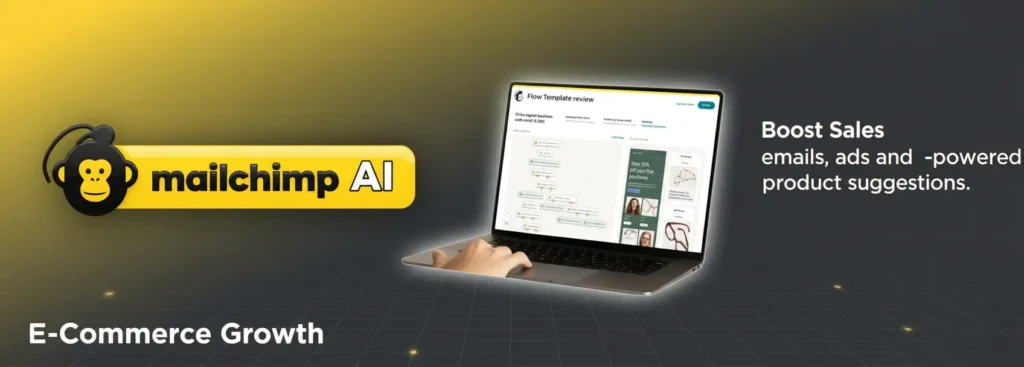
Key Features:
Best For:
It has a lot of features, but some of the more advanced automations might not work as well as they do on other specialized platforms.
Brief Introduction:
ActiveCampaign is a tool for automating marketing that uses AI. Its “Active Intelligence” and “Autonomous Marketing” features show that it is open to AI. It’s meant to make complicated marketing paths easier to follow and more effective.
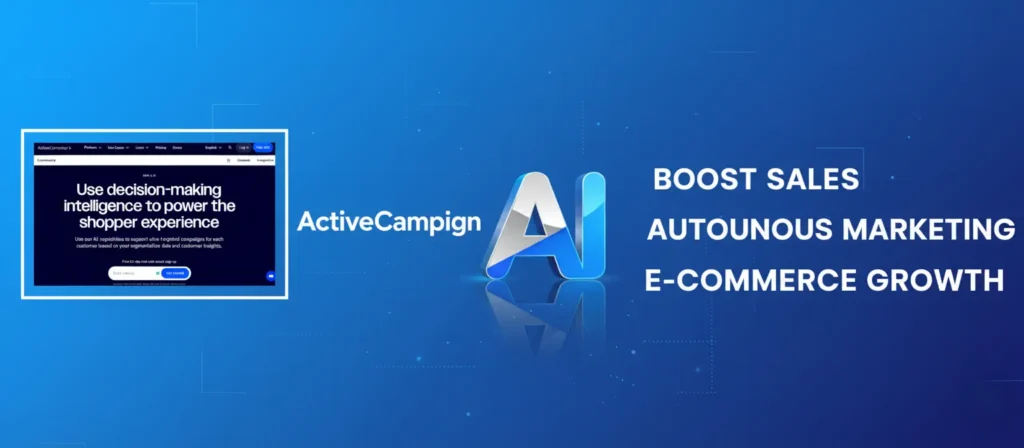
Key features:
Strategic planning guided by AI, AI agents for creating content and analyzing performance, and advanced automation processes that use AI to make campaigns more effective.
Best For:
Brief Introduction:
Klaviyo is the best marketing automation tool for online stores, and its AI features are a big part of its success. It focuses on personalized messages and observations based on data.
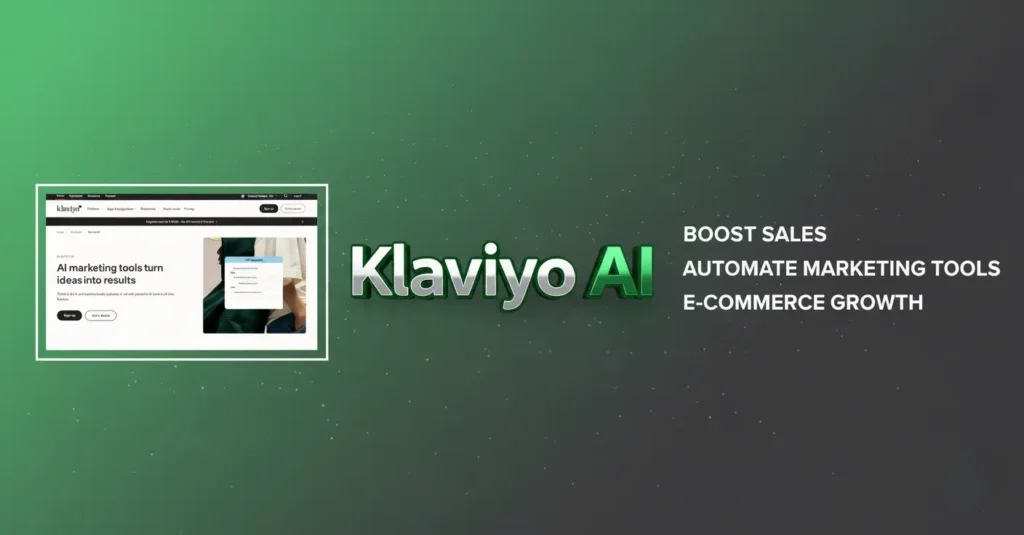
Key Features:
AI-assisted content creation for emails and SMS, predictive analytics to predict customer term value and churn risk, and smart send times that work best for each person based on their behavior.
Best For:
The best predictive data in its class, great personalization tools, and a large community for help.
Brief Introduction:
Brevo is a marketing platform that does everything. It has AI built in to help businesses of all kinds communicate more efficiently. It’s known for having a lot of features and being easy to serve.
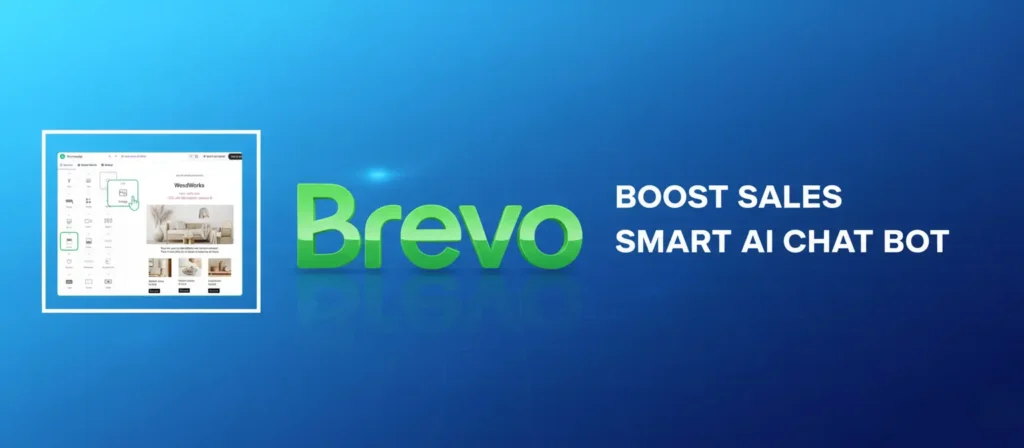
Key Features:
An AI subject line generator, chatbots that are driven by AI to help customers, and advanced email segmentation that uses data to make campaigns work better.
Best For:
It has a strong free plan, high deliverability rates, and a number of marketing platforms, such as email, SMS, and WhatsApp.
The AI tools aren’t as powerful or well-integrated as those on some different platforms.
Omnisend is a platform for email and SMS promotion that was made just for online shopping. Their AI-powered suite makes marketing easier, gets more people involved, and increases sales.
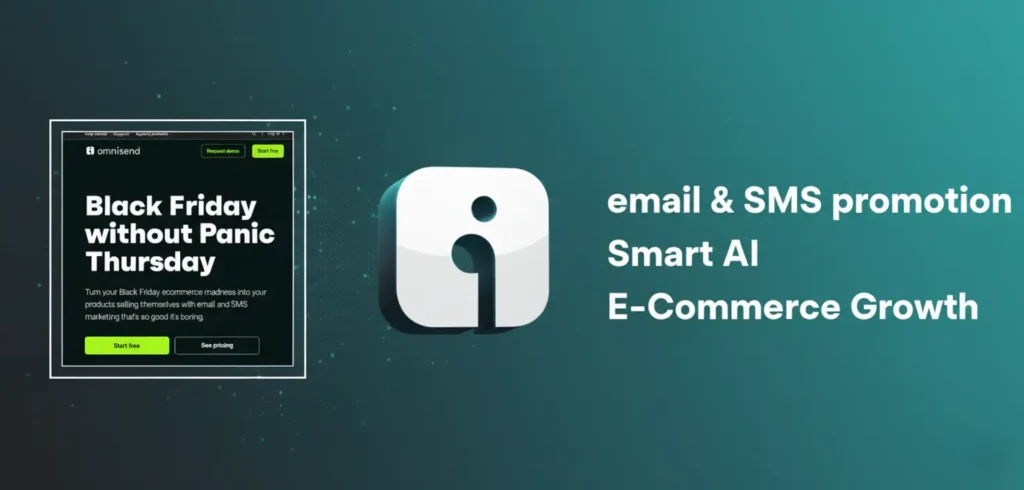
Key Features:
An AI Segment Builder that lets you divide your audience into groups using simple language
An AI Writer for writing content,
A Personalized Product Recommender that suggests goods to customers based on what they’ve looked at online.
Best For:
Brief Introduction:
Smartwriter.ai is an AI-powered marketing tool that focuses on making cold emails and LinkedIn messages that are very specific to the person receiving them. It’s not a full marketing suite, but it’s a great way to get new leads.
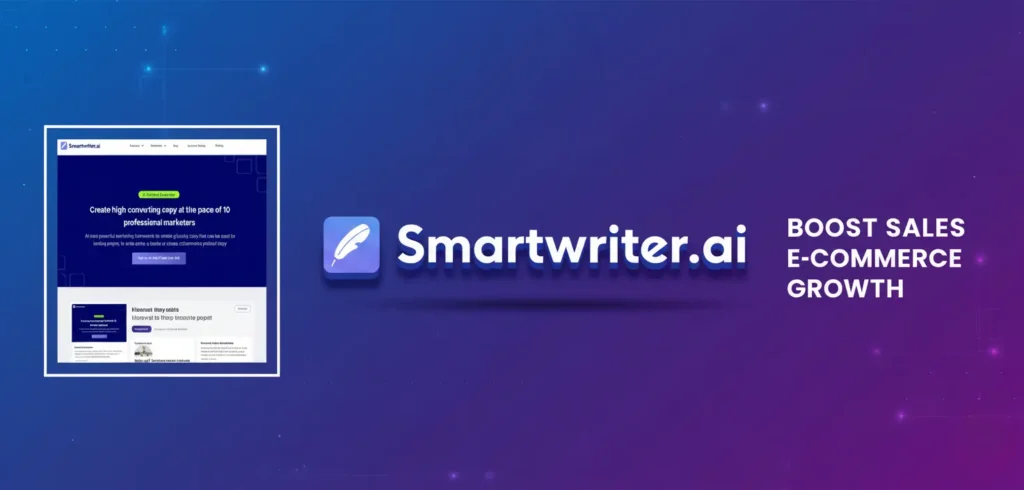
Key features:
Personalization by AI based on public data about a prospect, customized cold email sequences, and automated follow-ups are some of the most important features.
Best For:
It’s very customizable, great for finding B2B leads, and it saves a lot of time compared to doing research by hand.
Brief Introduction:
GetResponse is an all-in-one marketing platform that focuses on AI tools for online shopping. It has tools for meetings, email marketing, and landing pages.
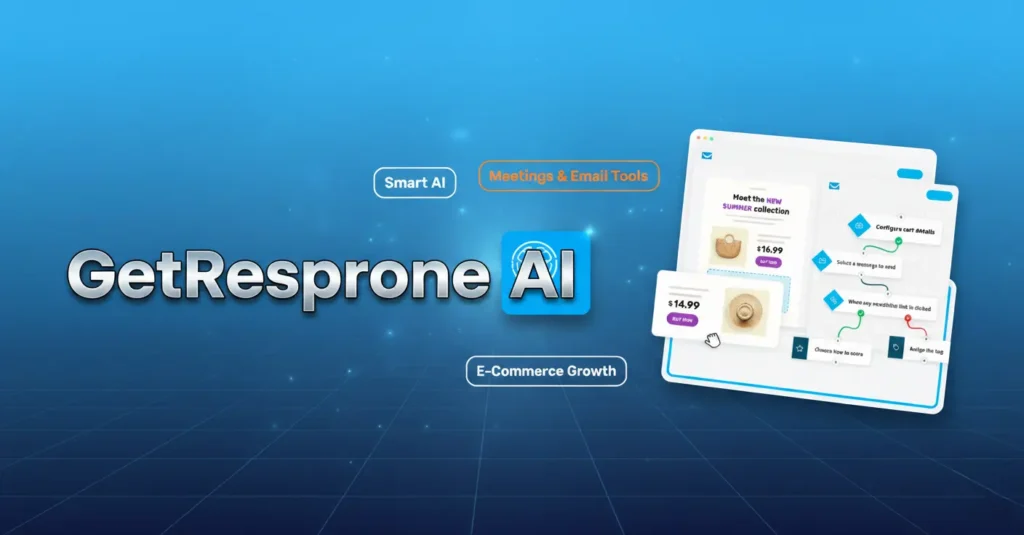
Key features:
An email creator powered by AI, a website builder powered by AI, and targeted product suggestions to raise the average order value.
Best For:
It has a complete platform, an easy-to-use design, and reasonable prices.
Brief Introduction:
Zoho Commerce is an e-commerce platform that helps businesses build and run their online stores by integrating a set of AI-powered e-commerce tools.
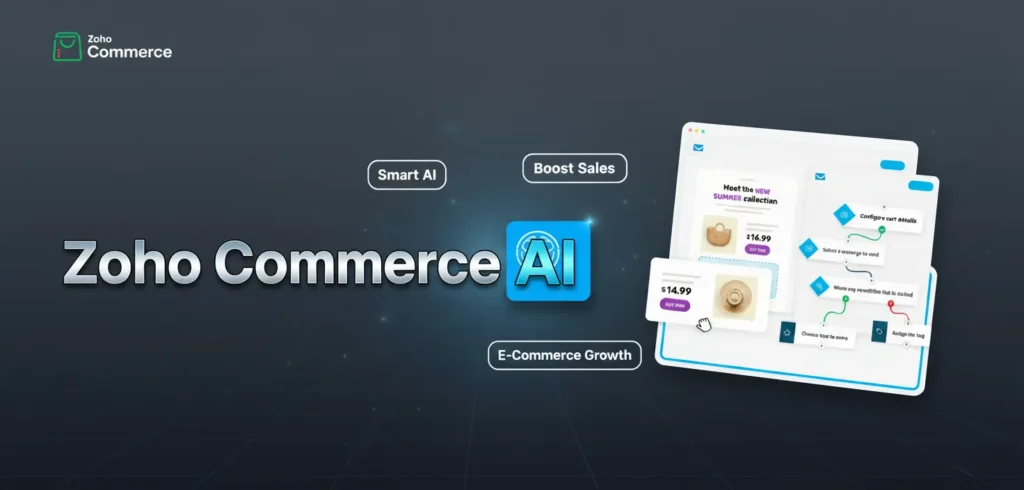
Key features:
A product description generator driven by AI, smart suggestions for upselling and cross-selling, and an automation framework to make store operations run more smoothly.
Best For:
It works well with other Zoho apps, has a full platform, and has useful routines built in.
Some users may not use it as much as Shopify or other platforms, which means that fewer third-party apps can be added.
Brief Introduction:
Frase is an SEO tool that uses AI to create and improve content. Businesses can use it to find, write, and improve material that search engines like.

Key features:
It has real-time SEO optimization ideas, AI-driven content briefs based on top-ranking pages, and an AI writer that can turn outlines into drafts.
Best For:
| Tool Name | Price | Output Quality | Best For | Notable AI Feature |
|---|---|---|---|---|
| Shopify AI (Shopify Magic) | Paid (included in Shopify plans) | High | Small to large Shopify merchants | Automated product descriptions, AI ads, analytics |
| Jasper AI | Paid | High | Content creators, marketers, ecommerce managers | Brand voice customization, ad copy, product descriptions |
| HubSpot AI | Paid | High | Businesses using HubSpot CRM, marketers, sales teams | Breeze Agents, AI segmentation, automated reporting |
| Mailchimp AI | Freemium | High | Ecommerce businesses focusing on email & SMS marketing | Intuit Assist, predictive segmentation, product recommendations |
| ActiveCampaign AI | Paid | High | Marketers needing advanced automation | AI-guided strategy, autonomous marketing, AI assistants |
| Klaviyo AI | Paid | High | Ecommerce & D2C brands focusing on personalization | Predictive analytics, smart send times, AI-assisted content |
| Brevo (Sendinblue) | Freemium | Medium–High | Businesses seeking multi-channel marketing | AI subject line generator, chatbots, segmentation |
| Omnisend | Paid | High | Ecommerce merchants of all sizes | AI Segment Builder, personalized product recommender |
| Smartwriter.ai | Paid | High | B2B ecommerce, agencies, sales teams | AI hyper-personalized cold emails & LinkedIn messages |
| GetResponse AI | Freemium | High | Small & medium ecommerce businesses | AI Email Creator, Website Builder, product recommendations |
| Zoho Commerce AI | Paid | High | Businesses using Zoho ecosystem | AI product descriptions, smart upselling, automation |
| Frase AI | Paid | High | SEO writers, ecommerce content creators | AI content briefs, real-time SEO optimization |
The rise of AI tools for e-commerce is no longer a thought for the future; it’s happening right now. Smart solutions like these don’t just make things go faster; they also make them better. These tools help businesses of all sizes thrive in a crowded digital market by automating repetitive tasks, giving customers highly personalized experiences, and giving them insights they can use.
Adopting these tools is important if you want to stay competitive after 2025. There is an AI tool for ecommerce business that can help you reach your goals, no matter if you’re a small business that wants to make marketing easier or a big company that wants to personalize your customers in more complex ways. The companies that are first to use these new technologies will be the ones that do well and start to grow.
AI tools for ecommerce are pieces of software that use AI and machine learning to do things automatically, make the customer experience more personalized, and help online stores run more efficiently. This includes everything from apps to engines that suggest products based on your preferences.
Using AI tools in an e-commerce business can help in many ways, such as making tasks more efficient through automation, getting customers more involved through personalization, making better decisions through data analytics, and increasing sales and conversion rates by making marketing and sales processes more effective.
AI tools for e-commerce come in a wide range of prices. For some platforms, basic AI features are included in a free plan, while for others, prices change based on how much you use them or how many friends you have. Small businesses can find options that are affordable, and bigger businesses can find solutions that are designed for their needs.
A lot of current AI-based e-commerce tools are made with easy-to-use interfaces that don’t require technical knowledge. AI is built right into the screens of platforms like Shopify and Mailchimp, which makes it easy to get started.
Not at all, Artificial intelligence (AI) tools are made to work with people, not replace them. AI is great at doing repetitive, data-heavy jobs, so people on teams can focus on coming up with new ideas, building relationships with customers, and solving hard problems. It’s about putting together a “hybrid human-AI team.”
Marketing automation follows a set of rules that have already been set up. For instance, when a new person signs up, send them a welcome email. On the other hand, AI learns from facts and changes how it acts. With the help of AI, a tool could try out different subject lines and times to send to find the best mix.
First, figure out what’s giving you the most trouble. Are you having trouble with customer service, writing material, or email marketing? Pick out a tool that fits your needs and begin with a free trial or a simple plan. As you see results, you can slowly increase the number of times you use ecommerce AI tools.
It’s tough to choose just one, but tailoring and marketing automation might be the two most important types of AI tools for online shopping. Customized experiences and mass marketing that can be done automatically are huge steps forward for increasing sales and keeping customers coming back.
Thank you for reading this article. I hope this article helps you a lot, and you will have to search again for “AI Tools for Ecommerce” on the internet.